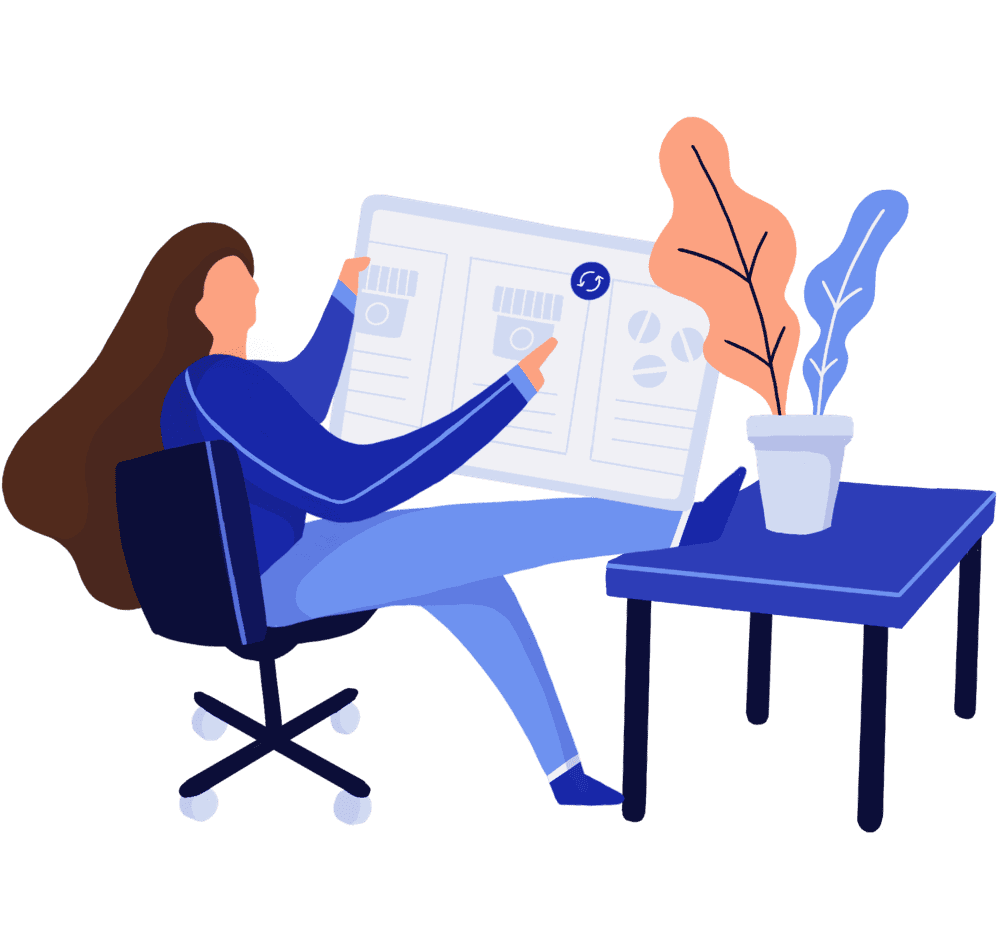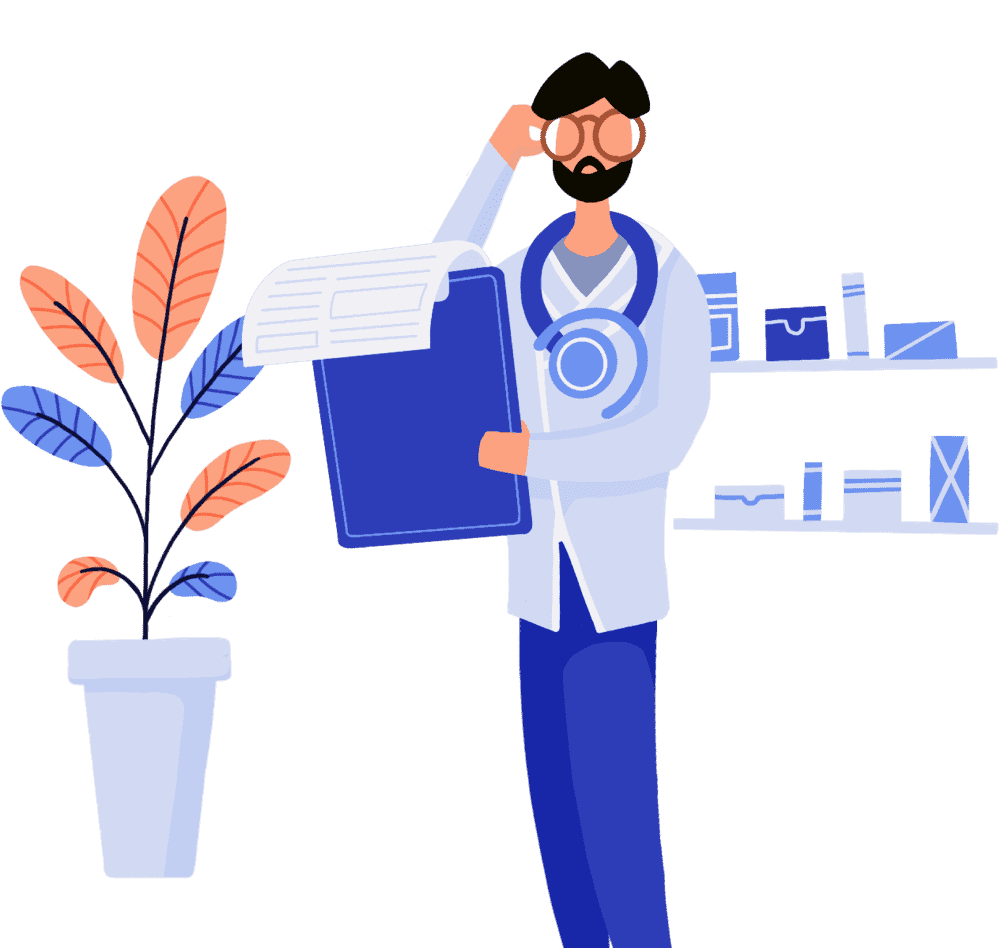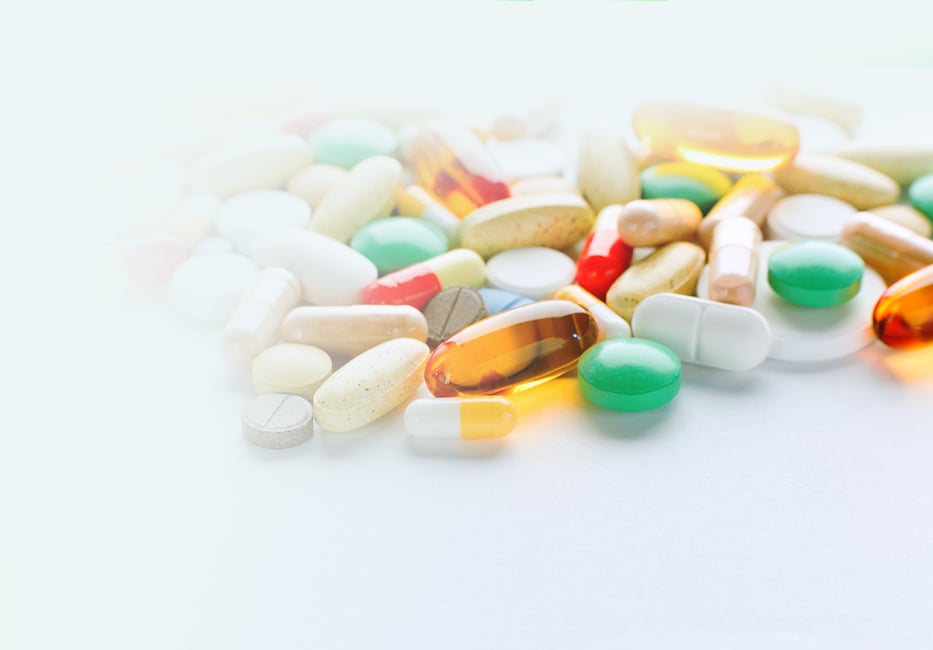Recharge your cells from within and enjoy 20% OFF NAD+ for a limited time only - shop now
- Home
- Vitamins & Supplements
- Multivitamins
Multivitamins
In order to maintain proper function, our bodies need a wide variety of vitamins and other nutrients. However, a lot of people aren’t managing to get their recommended amount through the food they eat, even with a healthy balanced diet. Be sure that you’re getting everything you need with our multivitamins, that can be specifically tailored to your age, gender and overall needs. Discover how each type of multivitamin helps the body.
More Information
What nutrients do what?
There is a seemingly endless list of vitamins and nutrients that you can find in food and that your body can use in one way or another. And they all have very different purposes and uses.
What does Vitamin A do?
Vitamin A helps your vision in low light, which is where the old wives’ tale about carrots helping you see in the dark comes from. It also helps to strengthen your immune system to ward off illness and infection, and keeps your skin healthy.
Men should be getting 0.7mg a day and women should be getting 0.6mg a day, but if you take more vitamin A than your body needs then it stores it for the future. Be careful not to take more than double your daily recommended intake though, as many years of doing this can make your bones more likely to fracture when you’re older.
What does Vitamin B do? / What is Folic acid?
There are many different types of B vitamins, all of which play different roles and require different intakes. Vitamin B1 (thiamin) helps to break down food and release the energy from it, as well as keeping the nervous system healthy. Men need 1mg a day while women need slightly less at 0.8mg a day. Vitamin B2 (riboflavin) performs the same functions as B1, but also keeps the eyes and skin healthy. Men need 1.3mg a day and women need 1.1mg a day. Vitamin B3 (niacin) performs very much the same role as B2, but your body needs much more of it, with men requiring 16.5mg a day and women needing 13.2mg a day.
Vitamin B6 (pyridoxine) allows the body to store and use energy from protein and carbohydrates, as well as assisting your red blood cells in carrying oxygen around the body. Men need 1.4mg a day while women need 1.2mg a day. Vitamin B12 is involved in keeping the nervous system healthy and producing red blood cells, as well as releasing energy from the food you eat. It also utilises folic acid (which we’ll get on to shortly). Adults need the same amount, regardless of gender, and this is 1.5mg a day.
Some nutrients aren’t obviously B vitamins, as they don’t have “vitamin B” in the title. Pantothenic acid is an example of this, and it performs several functions in the body, namely releasing energy from food. Your body can’t store it for future use though so you need to make sure you’re intaking it every day. Folate is another and is also referred to as folic acid (the man-made version). This helps the body form healthy red blood cells but is particularly important for pregnant women as it reduces health risks in unborn babies. Adults need a daily intake of about 200 micrograms, but pregnant women should be getting double that.
Biotin (also called vitamin B7) is responsible for breaking down fat. It’s only needed in very small amounts and the bacteria in your bowel are able to make it, so you don’t often need to worry about getting it from food or other supplements.
What does Vitamin C do?
Vitamin C plays a vital role in your immune system, as it helps with wound healing and protects cells from damage. It also maintains healthy bones, blood vessels and skin and adults need 40mg per day. Be careful not to overdose on vitamin C tablets though as taking too much (more than 1,000mg a day) can cause stomach problems.
What does Vitamin D do?
Most people know that we get vitamin D from sunlight, but a lot of people aren’t aware of why we need it. Vitamin D is important because it keeps muscles, bones and teeth healthy, as well as controlling the amount of calcium and phosphate in your body. Adults need 10 micrograms a day and deficiencies are unlikely, apart from during the winter months.
What does Vitamin E do?
Like vitamin C, vitamin E helps to strengthen the immune system and protects against infection. Men should get 4mg a day and women should get 3mg a day in order to sustain healthy eyes and skin.
What does Vitamin K do?
Vitamin K is important for healing wounds, as it helps the blood to clot and prevents you from losing too much blood if you injure yourself. Unlike a lot of vitamins, vitamin K is not required on a one-size-fits-all basis. For every kilogram of body weight, you will need 1 microgram per day, so you will need to work out your own specific requirement.
What does Calcium do for the body?
We are raised learning about calcium and its importance in relation to helping build strong bones and teeth, but it also ensures that your muscles contract properly (including your heart). Adults should have 700mg per day but exceeding double that can lead to stomach problems.
What are the benefits of Copper supplements?
Copper is an important part of the production of white and red blood cells and is especially key for children, as it aids the development of their brains, bones and immune systems. Adults should be getting 1.2mg on a daily basis.
What does Iodine do?
Thyroid hormones keep cells healthy and regulate your metabolic rate (the amount of energy your body uses and the speed it uses it at). Iodine is important for helping to make these hormones and adults require 0.14mg per day.
What does Iron do for the body?
Iron aids in the production of red blood cells, which supply your body with oxygen. The amount of iron you need varies based on your age and gender, with men of all ages and women over 50 needing 8.7mg a day, and women aged 18-50 needing 14.8mg a day.
What does Magnesium do for the body?
The mineral, magnesium, helps to convert the food we eat into energy, and also aids in bone health. Men require a daily amount of 300mg and women slightly less at 270mg.
What does Manganese do for the body?
The body needs enzymes to complete chemical reactions (like breaking down food) and manganese helps to make and utilise some of these.
What does Potassium do for the body?
Mostly associated with its presence in bananas, potassium helps the heart to function normally, and also controls the amount of fluid in the body. Adults should be getting 3,500mg per day.
What does Zinc do for the body?
Zinc has many functions including processing the food we eat (especially protein, carbohydrates and fats), healing wounds and making new cells. Men need 9.5mg a day and women need slightly less at 7mg a day.
Is it dangerous to take calcium and iron together?
Yes, taking Calcium and Iron supplements at the same time is dangerous as calcium (Ca) can inhibit iron (Fe) absorption and cause the development of iron-deficiency anemia as studied by Lönnerdal (2010) and Abioye et al (2021).
Is it dangerous to take Vitamin A and Vitamin E together?
Yes, taking high doses of Vitamin A and Vitamin E can be dangerous. High doses of Vitamin A can be toxic, causing injury to the liver, enlargement of the liver and spleen, jaundice, portal hypertension and other issues (LiverTox: Clinical and Research Information on Drug-Induced Liver Injury [Internet], 2020). Consuming high doses of Vitamin E can increase the risk of bleeding, as it reduces the abilty of blood to form clots after sustaining a cut or injury and can cause serious brain bleeding, also referred to as 'hemorrhagic stroke' (NIH, 2021).
Medically Reviewed by:
Dr. Alexis Missick MBChB. MRCGP
GMC reference no: 7151419
LinkedIn
Website
More Information
Medication delivered the next day from UK pharmacies



Choose the right treatment
From the comfort of your own home or out on the go, choose the treatment you require from our extensive range.
Complete an online consultation
A vital part of our process, your online consultation will be similar questions to that of a GP. Quick and easy, we guarantee privacy and confidentiality.
Delivered discreetly
One of over 100 of our partner regulated UK pharmacies will dispense and ship the treatment to you in discreet packaging.
Rated out of 5 on 
I always receive great service from uk meds, as mentioned before the ordering process is easy and I receive the item in a few days.
UK meds are reliable and trustworthy. Meds always arrive on time and always what is requested would recommend others to use this great company. Service is spot on. Thank you.
Excellent service.
Easy consultation Couldn't fault service
Rated 4.6 out of 5 based on 6913 reviews
Here to help you
Our Customer Service is available Monday to Friday 9am - 5pm. If you need urgent assistance, do not use this service. Call 111, or in an emergency call 999. Visit our help section


